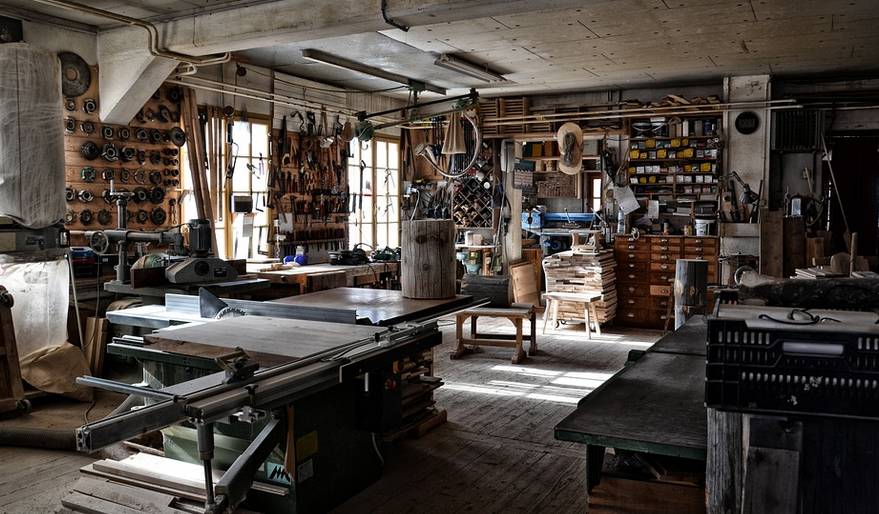A Grimy Situation Solved: Removing Rust from Your Concrete
Rust, that pesky orange-brown patina on your concrete, can be a real eyesore. And beyond the cosmetic annoyance, rust eats away at the structural integrity of your concrete over time. This can lead to significant issues down the line, making it imperative to address this problem as soon as possible. But fear not! There are several effective methods you can use to remove rust from your concrete.
Understanding Rust and Its Impact
Rust is a reddish-brown oxide that forms when iron or steel comes into contact with water, oxygen, and an electrolyte like salt or moisture. As the iron molecule reacts with these elements, it creates a network of tiny crystals known as rust. This process happens gradually over time, often accelerated by exposure to harsh weather conditions and pollutants.
The presence of rust can compromise the structural integrity of concrete, leading to crumbling and weakening of the structure. It can also make your concrete susceptible to further corrosion, which is a vicious cycle that demands attention early on.
Concrete, typically made with aggregates such as gravel or sand along with cement binder, can hold moisture and thus create an environment for rust formation. When water seeps into the cracks of the concrete, it increases the likelihood of rust developing. This is especially true in areas exposed to heavy rainfall or saltwater irrigation.
As time goes on, rust starts building up on the surface of the concrete, turning your beautiful surfaces into an orange-brown mess. The worst part about it all? Rust can be very damaging and make your concrete look completely different.
Dealing with Concrete Rust: A Comprehensive Guide
Now that you know why rust is a problem for your concrete, let’s dive into the ways to tackle this issue. There are several methods you can employ to remove rust from concrete surfaces effectively.
Removing Light Rust
For light rust deposits on concrete, you can try these less-invasive techniques:
* **Mechanical Scraping:** Use a stiff-bristled brush or wire brush to carefully scrape away the loose rust. This method is best for removing rust that doesn’t penetrate deeply into the concrete surface.
**Chemical Stripping Solutions:** For stubborn rust, chemical strippers offer efficient results. These solutions break down the rust at a molecular level, making it easy to remove with cleaning agents and water.
* **Pressure Washing:** A high-pressure washer can effectively blast away loose rust particles from your concrete surfaces. It helps to loosen up the rust and makes the cleaning process easier.
**Specialized Rust Removal Tools:** Various tools can help in removing rust, such as a metal grinder with appropriate blades or specialized rust removal tools that are specifically designed for this purpose. These tools offer greater control over the process.
Removing Deeper Rust
If you need to remove more substantial rust from your concrete surfaces, you’ll need to employ more robust methods:
* **Acid Etching:** Acid etching works like magic by dissolving the rust particles and removing them without damaging the underlying concrete. This is a highly effective solution for removing deep layers of rust.
**Sandblasting:** A powerful sandblasting machine can blasts away loose rust particles from your concrete surfaces, helping to restore their original look. It’s particularly useful when dealing with stubborn rust build-up
* **Pressure Washing and Grinding:** Combining the power of pressure washing with grinding tools helps remove deeper layers of rust and reshape the surface for a fresh start.
Keeping Rust Off Your Concrete: Prevention Is Key!
Preventing future rust formation is crucial to maintaining your concrete surfaces. Here are some preventative measures to keep in mind:
* **Regular Inspections:** Make it a habit to regularly inspect your concrete surfaces for signs of rust, particularly after rainfall or moisture exposure. This will allow you to address any minor issues promptly before they escalate.
**Sealants and Concrete Coating:** Applying sealants and coatings can help prevent water penetration into the cracks of your concrete. These protective barriers create a physical barrier against moisture and thus prevent rust formation from happening in the first place.
**Proper Drainage:** Ensure proper drainage to avoid standing water on your concrete surfaces, as this increases the likelihood of rust development.
Final Thoughts: Embracing Concrete’s Beauty
Removing rust from concrete can often feel like a daunting task. But remember that you’re not just removing a layer of orange-brown discoloration—you’re reclaiming your concrete’s original beauty and protecting its structural integrity for years to come.
With the right tools, techniques, and dedication, you can conquer rust and enjoy your beautifully restored concrete surfaces once again. Don’t let rusty stains dampen the beauty of your exterior surfaces – take action and reclaim that fresh look!
